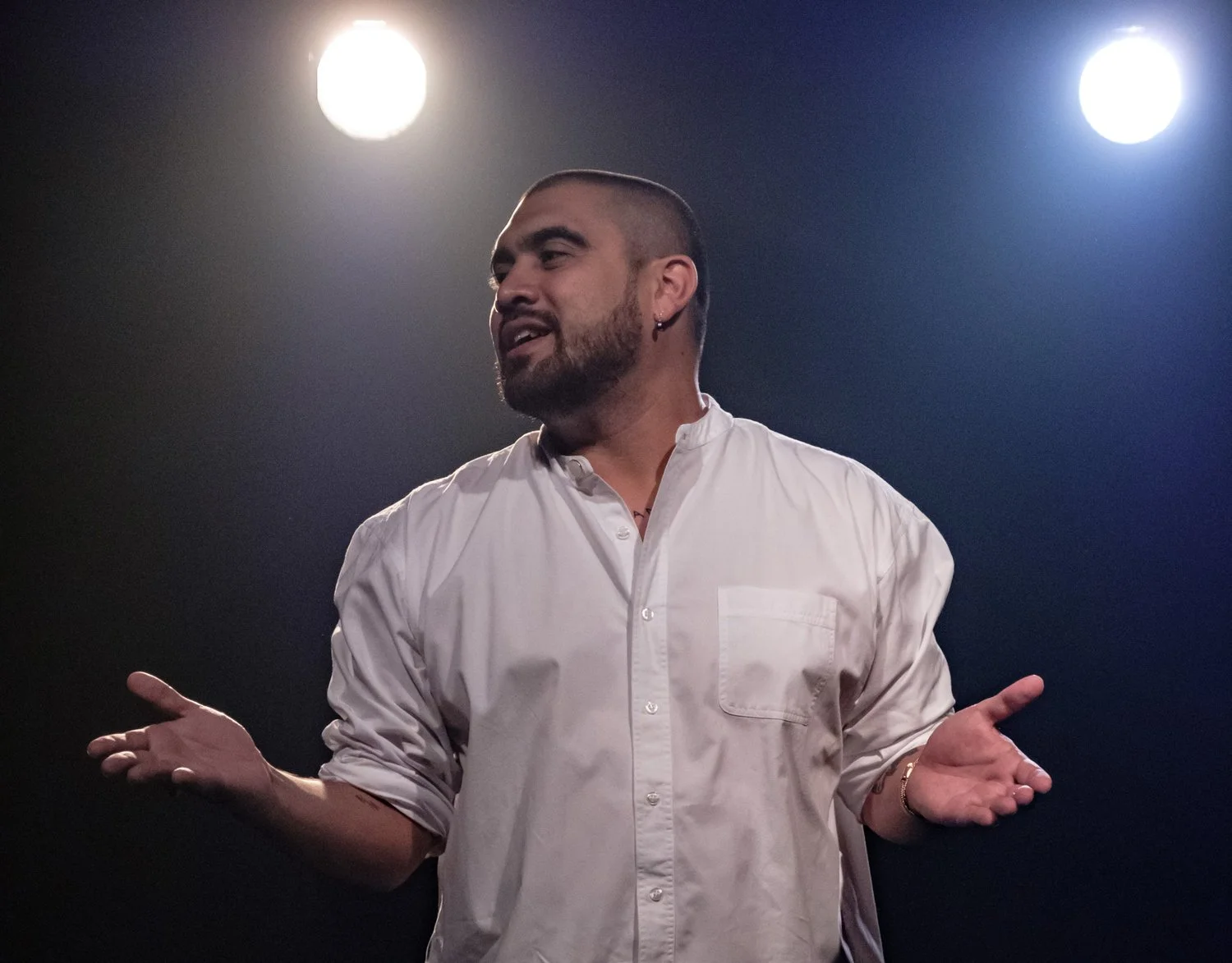Artist Interview: Omar Musa, Since Ali Died
We are in the midst of the Big World, Up Close Festival, which has returned for its third year at Arts Centre Melbourne. The festival shines a light on vital voices of First Nation artists from around the world, Indigenous Australian artists and queer performers who take to the stage to share their experiences and their art.
Omar Musa is a Malaysian-Australian rapper, poet and author who typifies the spirit of the festival. His show "Since Ali Died" is set to delve into his unique and compelling take on culture, religion, and love. He graciously has taken some time to chat with us at In Review, in a pre-show Q&A.
1. Can you tell us a bit about what particular moment, experience or inciting event inspired you to create this piece?
I used to (darkly) joke that the world fell apart after my childhood hero Muhammad Ali died - Brexit, the rise of Trump, and even my own life with friends passing away and losing love. So I made an album based on that idea.
2. In what ways has Since Ali Died evolved from the initial concept to it going on stage?
It's hugely different. It was originally an album with very loose narrative strands that we then deepened and expanded upon with storytelling and poems into a play, and built up the central image of me sailing down a dark river telling the story of my life to Muhammad Ali. There is also a big section about my relationship with my father and Islam.
3. How do you think Australia can move toward being more accepting of different faiths, and, what are your thoughts on the role of arts and poetry in achieving this?
By listening, by not deliberately shutting off our ears and intelligence and compassion. I think the role of the arts and poetry is small but significant, in building empathy, in telling untold stories, in building bridges not walls.
4. What started your involvement with spoken word? Can you comment on how this medium is explored in Since Ali Died?
I was invited to perform at a poetry slam in Canberra in 2006 and was addicted immediately. It's explored a lot in the play - it constantly dips in and out of poetry and rap.
5. In the show you touch on the troubles you faced as a ‘brown-skinned, Muslim boy growing up in Queanbeyan'. Do you think that some of these experiences would be much different if you were a young person today? What changes have you seen in Australian suburban culture?
When it comes to a shifting cultural battleground, it's always a matter of two steps forward, one step back. I'm sure there are some ways in which young people are less prejudiced and more progressive, but the simmering tensions that underpin our society are also still there. While we have advanced on certain issues like marriage equality, I sometimes think something like Islamophobia has worsened. So it's hard to say - it's definitely not simple.
6. What do you hope people take away from Since Ali Died?
Joy, anger, laughter, sadness. A cool, fresh look at the messiness of Australian identity.
Omar Musa's show Since Ali Died, opens Tuesday August 13th and runs until 17th August 2019 as part of the ‘Big World, Up Close’ series at Arts Centre Melbourne. Tickets are available via Arts Centre Melbourne.
We will be posting our review of the show in the next few days.

